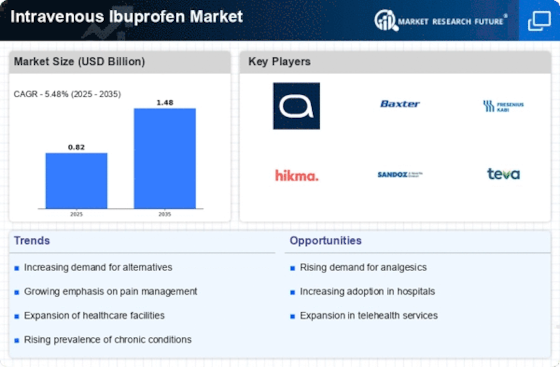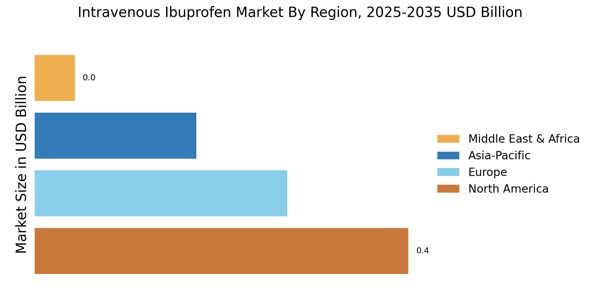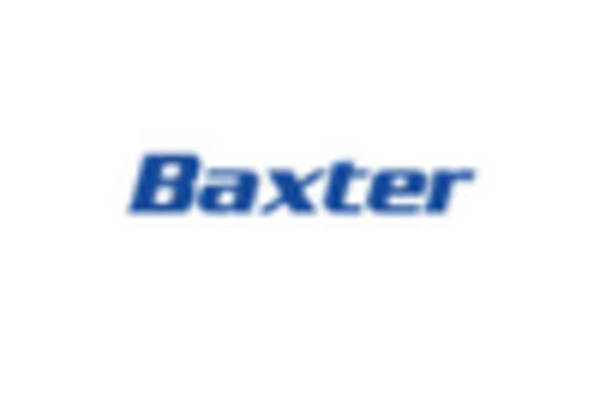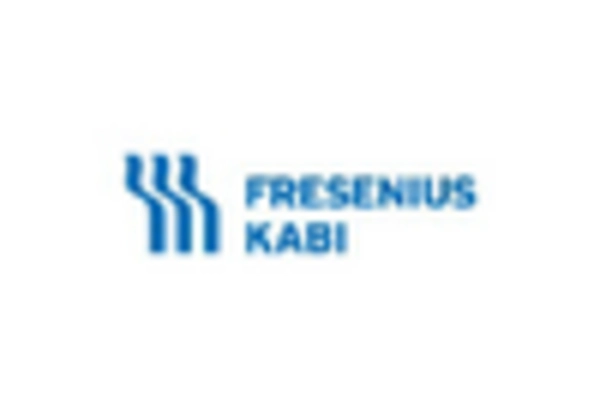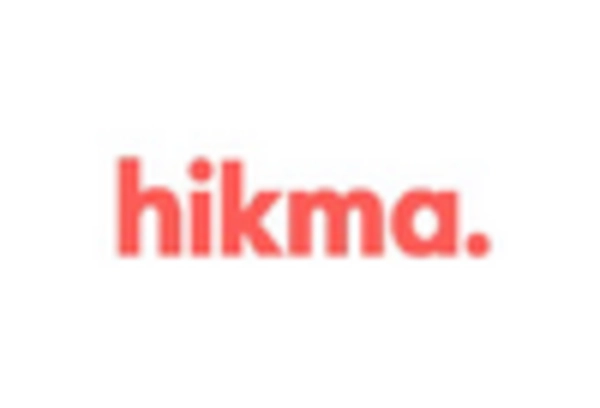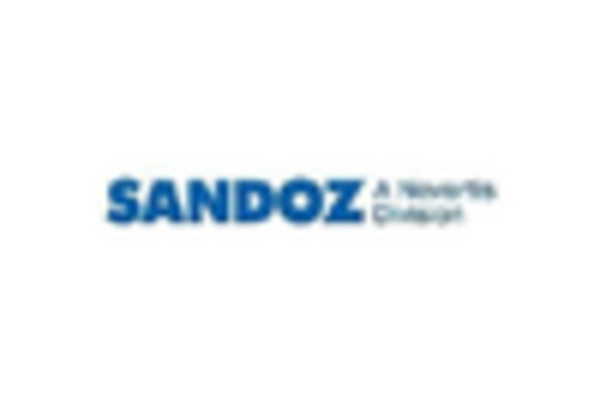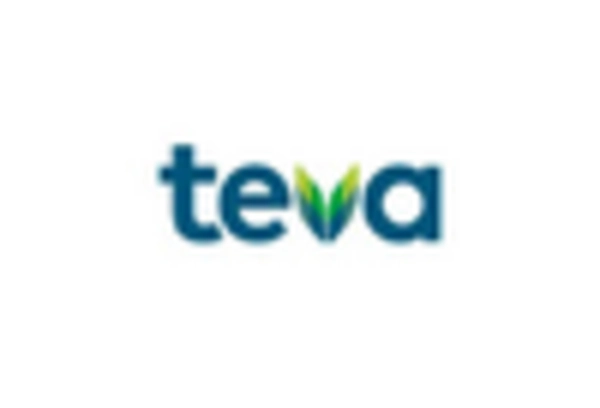Advancements in Healthcare Infrastructure
The continuous improvements in healthcare infrastructure, particularly in hospitals and outpatient facilities, are significantly influencing the Intravenous Ibuprofen Market. Enhanced facilities enable the effective administration of intravenous medications, including ibuprofen, which is crucial for managing acute pain. The expansion of surgical procedures and the rising number of outpatient surgeries contribute to the demand for intravenous pain relief options. Data suggests that outpatient surgeries have increased by approximately 30% over the past decade, creating a substantial market opportunity for intravenous ibuprofen. As healthcare systems evolve to accommodate these changes, the market for intravenous ibuprofen is poised for growth, driven by the need for efficient pain management solutions in modern medical settings.
Regulatory Support for Intravenous Medications
Regulatory bodies are increasingly supporting the use of intravenous medications, including ibuprofen, which is positively impacting the Intravenous Ibuprofen Market. Recent approvals and guidelines from health authorities have facilitated the introduction of new intravenous formulations, enhancing their availability in clinical settings. This regulatory support is crucial for ensuring that healthcare providers have access to effective pain management options. Furthermore, the emphasis on evidence-based practices in pain management is likely to encourage the adoption of intravenous ibuprofen as a standard treatment protocol. As regulations continue to evolve, the market for intravenous ibuprofen is expected to benefit from increased acceptance and utilization in various healthcare environments.
Increasing Prevalence of Pain-Related Conditions
The rising incidence of pain-related conditions, such as arthritis, postoperative pain, and migraines, is a primary driver for the Intravenous Ibuprofen Market. As the population ages, the prevalence of chronic pain conditions is expected to escalate, leading to a higher demand for effective pain management solutions. According to recent estimates, nearly 20% of adults experience chronic pain, which necessitates the use of intravenous medications for rapid relief. This trend indicates a growing market for intravenous ibuprofen, as healthcare providers seek efficient alternatives to traditional oral medications. Furthermore, the increasing awareness of the benefits of intravenous administration, such as faster onset of action and better patient compliance, is likely to bolster the market's growth in the coming years.
Growing Preference for Non-Opioid Pain Management
The increasing focus on non-opioid pain management strategies is a significant driver for the Intravenous Ibuprofen Market. With the rising concerns regarding opioid addiction and side effects, healthcare providers are actively seeking alternative pain relief options. Intravenous ibuprofen offers a viable solution, providing effective analgesia without the risks associated with opioids. Market data indicates that the demand for non-opioid analgesics has surged, with intravenous formulations gaining traction among clinicians. This shift in preference is likely to enhance the market for intravenous ibuprofen, as it aligns with the broader trend of promoting safer pain management practices. As awareness of the benefits of non-opioid treatments continues to grow, the intravenous ibuprofen market is expected to expand accordingly.
Rising Awareness and Education Among Healthcare Professionals
The growing awareness and education among healthcare professionals regarding the benefits of intravenous ibuprofen is a key driver for the Intravenous Ibuprofen Market. As medical practitioners become more informed about the advantages of intravenous administration, such as rapid onset of action and improved patient outcomes, the adoption of intravenous ibuprofen is likely to increase. Educational initiatives and training programs are being implemented to enhance knowledge about non-opioid pain management strategies, further promoting the use of intravenous ibuprofen. Market analysis indicates that as healthcare professionals embrace these educational resources, the demand for intravenous ibuprofen will likely rise, contributing to the overall growth of the market.


